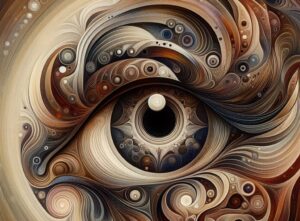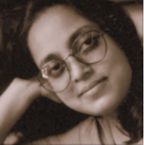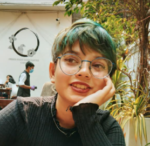TRANSLATED FROM THE BENGALI BY CHIRAYATA CHAKRABARTY
You come into this family of warmth, of tenderness,
and only wreak havoc, my dear
You are a thief of peace
Go home, go home
That’s what they tell me
My neighbours, and my own son.
They have called me Alakshmi, evil.
Why wouldn’t they? I’ve smoked cigarettes
And I’ve come home after dark.
Our home has not seen sandhya aartis,
or heard prayers and the conch.
Besides, friends have come,
male friends, flocks of poets, at midnight for a chat.
My son studies behind a closed door,
Even he knows his mother’s odd, never our ordinary Sati.
Go home, go home, they all said
So I bought myself a flat.
The weight of my joy topples the sacred pot.
The husband and the family say nothing.
The son says nothing.
Could I please make my own happiness, my love?
Have I fixed up the flat alone?
Does my hearth cook a meal for one?
Misery, misery
I break the sacred pot…
I come back home like an Alakshmi mother
I sleep till 7,
I roam the bad neighbourhoods with my hair loose…
I concoct chaos, I chant poems all night…
And I have left my footprints along the way… unwittingly.
I tore my body into shreds until I was only
a pair of fevered eyes…
Where’s the third eye? It’s somewhere here,
put away in some hole.
I might take it out and wear it afterall.
The Mahabharata Series
That gentleman could understand everything but could do
nothing about anything. That gentleman with thick glasses,
read The Statesman the whole day and wrote letters:
Dear Editor
Why this abysmal rate of child mortality in our country…
His wife had a tough time making the two ends meet,
the girls had grown up; that gentleman could understand
everything but could do nothing about anything.
Salt and pepper stubs on sunken cheeks, he was busy
writing letters:
Dear Editor
Why this pathetic condition of women in
our blasted nation…
He had spent his entire gratuity fund on the ornaments and
furniture
for his daughters’ wedding; his wife sighed as she had
started knitting,
selling pickles and bori…that gentleman could understand
everything
but could do nothing about anything.
When the grandsons were admitted to English medium
schools
and the two sons-in-law were scraping to meet the
expenses,
to help the daughters save some money his wife herself
began doing the chores; – got ulcers on her toes, had
cataract and
her neck and hands – bare of ornaments.
Skeletal chest, loose dangling vest
even then that gentleman:
Dear Editor
Why is there arsenic in water? Why is the education system
of the third world so faulty, why is our inflation rate so
high…
1
On some days, we are friends, the clinking of cups
comes from the kitchen, laughter, the clove scents
of a mutton curry
from another kitchen in another house, seasons our plain rice
a little bit of gossip, word of mouth stories, “Benuda’s eaten
whale meat, did you know?”
on some days, we cook our own curries too
kitchen sweat, sweet cinnamon scents
2
On some days we fight, our room splits in two
the tart smoldering of cigarettes from one side of the wall
the scraping of chair legs from the other
someone gathers paper, furniture for the burning
even the inanimate know that the air is hot
the thermometer breaks out in sweat
3
On some days, the family’s over
we leave and go to the park when we fight
we scream, bury the shrapnel of our bickering in the soft soil
behind the plants
I’m sure we have bickered in them all
maybe these parks were made for us, our disagreements,
which we
leave behind laying on the grass
4
Who could ever stop talking about living to its end while
they’re living?
The ayurvedic balm in the bookshelf corner,
the irritation next to the tire,
the fan next to the tape recorder,
the word next to the word, the letter next to the letter
books, clocks, diaries, and sorrow sit next to each other,
I place paper next to paper
Also, read “POEMS FROM ‘GARIP/STRANGE’— NEIL P. DOHERTY, TRANSLATED FROM THE TURKISH BY NEIL P. DOHERTY” published in The Antonym:
Follow The Antonym’s Facebook page and Instagram account for more content and exciting updates




























0 Comments